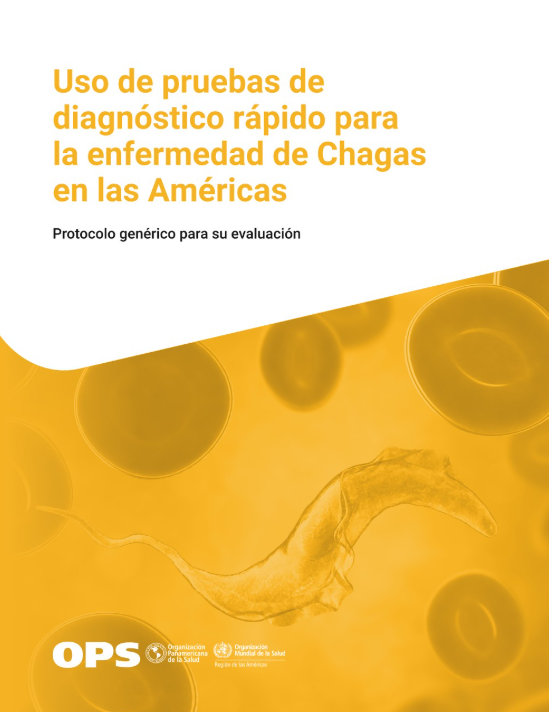New protocol on rapid diagnostic tests for Chagas disease in the Americas
PAHO publishes recommendations for more accessible Chagas disease diagnosis in resource-limited areas
13/03/2025
The Pan American Health Organization (PAHO) published “Use of Rapid Diagnostic Tests for Chagas Disease in the Americas”, a generic protocol on diagnostic systems for Trypanosoma cruzi infection, the parasite that causes Chagas disease.
This document is a strategic guide for researchers and laboratories to consider when performing serological diagnoses for T. cruzi. These methods are based on the detection of antibodies against parasite antigens, and they are especially recommended in the chronic stage of the disease. This guide focuses on rapid diagnostic tests (RDTs), which could facilitate the diagnosis of Chagas disease in endemic areas where access to complex laboratories is limited.
According to the recommendations by the Pan American Health Organization, the results must be compared with a second serological method to confirm their validity. These guidelines ensure that each stage is carried out with the highest quality standards through the following principles:
- The importance of test validation and verification, to ensure that the results are consistent, accurate, and clinically relevant.
- Adaptability to local contexts, based on variables such as resource availability, working conditions, and the epidemiological characteristics of each area.
- Quality control and ongoing training of healthcare personnel.
- Continuous evaluation and cost-effectiveness of the tests and ensuring that resources are used optimally.
- Ethical and regulatory considerations that guarantee patient rights and the integrity of the study.
This work is carried out within the framework of PAHO’s efforts to improve the diagnosis and management of Chagas disease in the Americas, reducing the burden of this disease in the affected communities.
Read the full document (in Spanish) on the PAHO website.
SHARE
Other news







